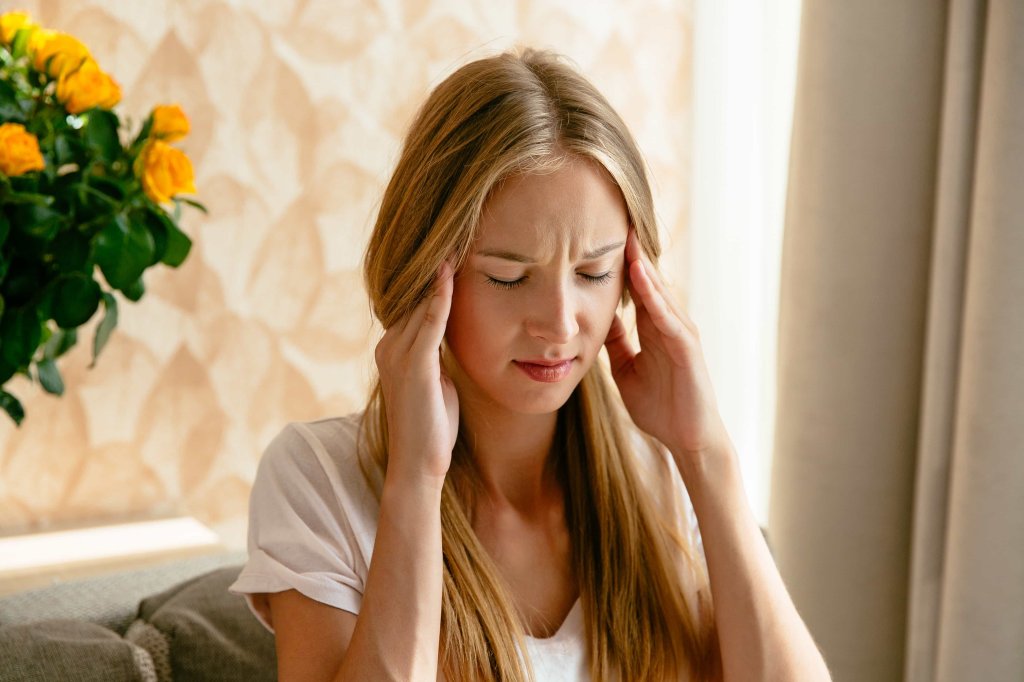Migraine is a chronic condition known for its severe headaches, which can significantly affect daily life. During migraine attacks, intense pain, sensitivity to light and sound, and nausea can be overwhelming. However, it is possible to alleviate migraine attacks with some simple home remedies. These natural methods can help control migraine pain and improve your quality of life. Here are seven effective ways to relieve migraines at home.
1. Resting in a Dark and Quiet Room
Light and sound sensitivity are common symptoms during migraine attacks. Therefore, resting in a dark and quiet room can help alleviate migraine pain. When intense headaches begin, you can darken the room by closing the curtains and try to relax in a quiet space. Minimizing the discomfort caused by light and noise can make it easier to get through a migraine attack.
2. Applying Cold or Hot Compresses
Applying a cold or hot compress can be effective in relieving migraine pain. A cold compress, especially when applied to the forehead or the back of the neck, can help reduce pain. Cold constricts the blood vessels, which can decrease the severity of the headache. On the other hand, some people find that a hot compress relaxes the muscles and provides relief. You can experiment to see which one works best for you.
3. Drinking Plenty of Water
Dehydration can trigger migraines and worsen the pain. Therefore, when you feel migraine symptoms, it's essential to drink plenty of water. Staying hydrated throughout the day can help prevent dehydration, which in turn helps reduce the severity of headaches. Additionally, avoiding caffeinated and alcoholic beverages can reduce the risk of dehydration.
4. Using Aromatherapy and Essential Oils
Aromatherapy can have a relaxing effect on migraine pain. Essential oils such as lavender and peppermint are commonly used to relieve headaches. Lavender oil, with its calming effect, can reduce stress caused by migraine attacks, while peppermint oil helps relax muscles. You can apply a few drops of essential oil by gently massaging your temples or neck.
5. Practicing Stress Reduction Techniques
Stress is one of the main triggers for migraine attacks. Therefore, managing stress can be effective in reducing the frequency and severity of migraines. Techniques such as meditation, deep breathing exercises, and yoga can lower stress levels and help prevent headaches. Incorporating these practices into your daily routine can make you more successful in managing migraine pain.
6. Taking Magnesium Supplements
Magnesium deficiency is a factor that can contribute to migraine attacks. Therefore, taking magnesium supplements may help alleviate migraine pain. Consuming foods rich in magnesium, such as spinach, avocados, and almonds, can provide the body with the magnesium it needs. However, it's advisable to consult a doctor before starting magnesium supplements.
7. Being Mindful of Caffeine Intake
Caffeine can either trigger or relieve migraine pain in some people. Consuming small amounts of caffeine, such as through coffee, can help alleviate a migraine attack. However, excessive caffeine consumption can trigger migraines, so it's important to consume it in moderation.
Conclusion
There are several methods to alleviate migraine attacks at home. Resting in a dark and quiet room, applying cold compresses, drinking plenty of water, and using aromatherapy are effective ways to relieve migraine pain. Additionally, stress management, magnesium supplementation, and balanced caffeine intake can help control migraine attacks. By trying these methods, you can better manage migraine attacks and improve your quality of life.




